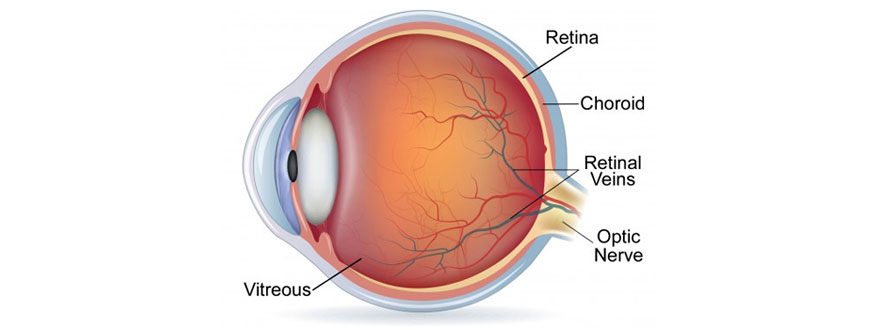Retina

Our focus is on diagnosing, managing, and treating diseases and conditions that affect the retina and vitreous, which are crucial components of the eye responsible for vision.
Here's an overview of what this service entails:
- Patient Evaluation & Diagnosis: Patients presenting with symptoms such as blurred vision, floaters, flashes of light, or visual field defects undergo a comprehensive eye examination to assess the health of the retina and vitreous. This includes dilated fundus examination, optical coherence tomography (OCT), fundus photography, fluorescein angiography, and other specialized imaging tests to diagnose and monitor retinal conditions.
- Classification & Subtypes: Retinal diseases and conditions encompass a wide range of disorders, including but not limited to:
- Retinal Detachment: Separation of the retina from the underlying retinal pigment epithelium (RPE), which can lead to vision loss if not promptly treated.
- Diabetic Retinopathy: Damage to the blood vessels of the retina caused by diabetes, which can result in vision impairment or blindness if left untreated.
- Age-related Macular Degeneration (AMD): Progressive deterioration of the macula, the central portion of the retina responsible for sharp central vision.
- Retinal Vascular Diseases: Disorders affecting the blood vessels of the retina, such as retinal vein occlusion, retinal artery occlusion, and hypertensive retinopathy.
- Retinal Inflammatory Diseases: Conditions characterized by inflammation of the retina and/or choroid, such as uveitis, posterior uveitis, and infectious retinitis.
- Hereditary Retinal Disorders: Genetic conditions affecting the structure and function of the retina, such as retinitis pigmentosa and inherited macular dystrophies.
- Long-term Management & Follow-up: Retinal diseases often require long-term management and monitoring to prevent disease progression, optimize visual outcomes, and minimize complications. Regular follow-up visits are essential for assessing treatment response, monitoring for disease recurrence, and detecting any new or evolving retinal pathology.
- Patient Education & Support: Educating patients about their specific retinal condition, treatment options, and the importance of compliance with treatment regimens and follow-up appointments is crucial for optimal management. Providing information on lifestyle modifications, visual aids, and support services can help patients cope with vision loss and maintain their quality of life.
By offering retina services, our aim is to preserve vision, restore visual function, and improve the quality of life for patients affected by retinal diseases and conditions. This comprehensive approach to retina care involves early detection, individualized treatment plans, and ongoing monitoring to optimize outcomes and minimize vision loss.
Important Links